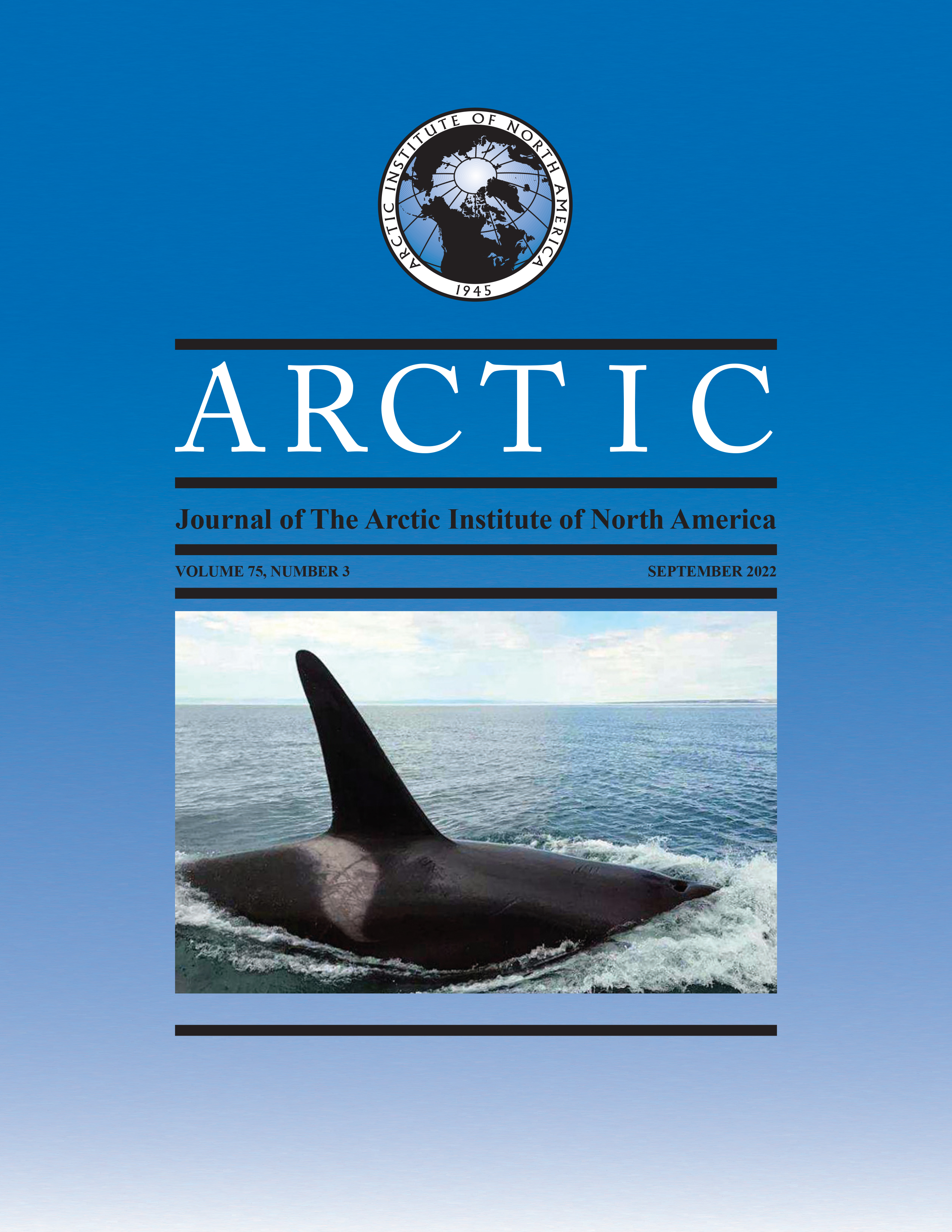The Forgotten Coast: A Synthesis of Current Knowledge of Southern Chukchi Sea Lagoon Ecosystems
DOI:
https://doi.org/10.14430/arctic75608Keywords:
coastal lagoons; Arctic Ocean; Chukchi Sea; ecology; fish assemblages; ecosystem resilience; climate change; human impacts; subsistence harvest; conservationAbstract
In the Southern Chukchi Sea Region (SCSR) of the Alaskan Arctic, approximately 40% of the coastline consists of freshwater-brackish lagoons and the gravel spits that separate them from the ocean. These lagoons are important rearing, feeding, and spawning habitats for diverse fish and invertebrate assemblages composed of freshwater, diadromous, and marine taxa. Many of these species are prey for a suite of marine mammals and avian predators in addition to being important to the food security of subsistence users from the surrounding region. Despite recognition of the ecological and cultural importance of these habitats from as far back as the 1950s, the body of knowledge surrounding lagoons of the SCSR contains many knowledge gaps and fails to comprehensively capture the dynamic nature of both biotic and abiotic factors that define the functional ecology of these habitats. This report synthesizes the available knowledge of SCSR lagoons, including geomorphology, hydrology, food web structure, and local knowledge. We also recommend avenues of future study, such as characterizing the basal trophic levels of lagoon food webs. Only by constructing a more detailed and comprehensive knowledge base of SCSR lagoon ecology will management and conservation efforts in the region be able to address and mitigate potential threats resulting from expanding infrastructure and global climate change, while simultaneously supporting the diverse portfolio of lagoon habitats that have a vital role in regional subsistence practices and food security.
Published
Issue
Section
License
Copyright (c) 2022 ARCTIC

This work is licensed under a Creative Commons Attribution 4.0 International License.


